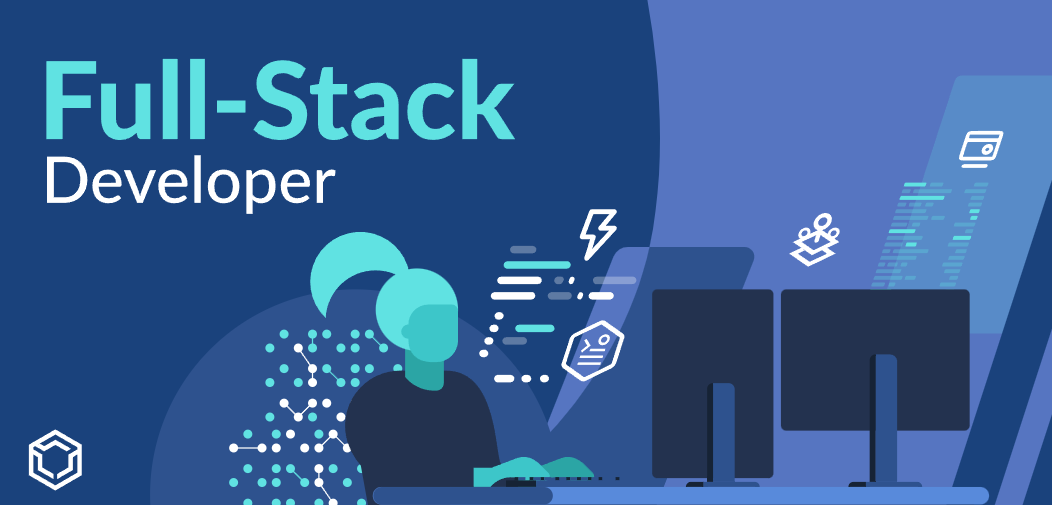Full Stack Development Challenges and How to Overcome Them

If you are venturing into the world of full-stack development, you are embarking on a journey that combines both frontend and backend skills to create dynamic web applications. As the name suggests, full-stack development deals with both front-end and back-end skills. Hence, this path comes with its own set of challenges.
In this comprehensive guide, we will explore the common challenges faced by full-stack developers and provide insights on how to overcome them. We will also highlight the importance of pursuing a Full stack Development course in Alwar, Kolkata, Greater Noida, Bangalore, Pune, Delhi, Mumbai, Gandhinagar, and other cities across India to equip yourself with the skills needed to excel in this field. By the end of this extensive guide, you will have a clear knowledge of how the complexities on the path of full-stack development can be minimized.
Introduction to Full Stack Development
Full-stack development involves working on both the client-side (frontend) and server-side (backend) of web applications. Hence, it is clear that full-stack developers need to be proficient in a wide range of technologies. Their skill set should involve everything ranging from HTML, CSS, and JavaScript for the front end to server languages like Python, Ruby, or Node.js for the back end. In addition to these languages, they also work with databases, APIs, and various frameworks to create fully functional web applications. So, saying that this field is challenging is not an overstatement. Let us have a look at the common challenges that full-stack developers face in their daily lives.
Common Full Stack Development Challenges
- Learning Curve: Full-stack development encompasses a vast array of technologies and tools. It is not realistic to learn everything in one go. You have to be decisive about the tech stacks that you want to focus on in the initial part of your career and master it first before moving ahead. Learning both front-end and back-end development can be overwhelming for beginners.
- Staying Updated: We all can agree that technology evolves rapidly. With such a wide variety of tech stacks and tools, which are updated frequently, Full-stack developers must continuously update their skills to keep up with the latest trends and tools. Hence, in this field, learning never stops.
- Project Management: Managing both the frontend and backend components of a project can be challenging. The ability to do this task seamlessly comes from experience. Effective project management is essential to ensure all parts work correctly.
- Debugging: You must know that debugging takes a lot more time than coding. When you are a full-stack developer, you have to debug both the front-end and the back-end part of the application. This can be complex, overwhelming, and time-consuming in the earlier phase of your career.
- Performance Optimization: Your job will also involve ensuring that a web application is fast and responsive. This will require careful optimization on both the front end and back end.
- Security: Full-stack developers need to be vigilant about security. This is because the vulnerabilities can exist at multiple levels of an application.
- Integration: Integrating various components, such as databases, third-party APIs, and frontend libraries, can be tricky. After gaining knowledge about the tech stacks, you will also have to spend a good amount of time learning the integration part.
How to Overcome Full Stack Development Challenges
Well, it is now more than clear that this field is not a cakewalk. You have to be very determined if you want to walk on this path. However, no problem does not have a solution. All the difficulties that we have discussed above can be reduced if you are disciplined, dedicated, and consistent. Let us have a look at some of the ways that can help you master this field by helping you overcome the challenges.
- Structured Learning: You should always begin with a structured approach. Start with the fundamentals of frontend and backend development before diving into more complex topics. You can also consider enrolling in a Full Stack Development course to receive expert guidance and a structured curriculum.
- Continuous Learning: The key to correct knowledge is to stay updated with the latest technologies and trends by reading blogs, attending webinars, and taking online courses. You must dedicate your time to learning and experimenting with new tools and languages.
- Effective Time Management: Use project management tools like Trello or Asana to keep track of tasks and deadlines. You can break projects into manageable chunks and allocate time for both frontend and backend work.
- Debugging Tools: Familiarize yourself with debugging tools available for frontend (browser developer tools) and backend (IDE debuggers). Try to learn ways to use them efficiently to identify and resolve issues.
- Security Best Practices: You can consider spending some time studying security best practices for both frontend and backend development. One of the best practices includes regularly updating dependencies to patch known vulnerabilities.
- API Documentation: When you are working with third-party APIs, always refer to their documentation thoroughly. Ensure you understand how to make requests and handle responses effectively.
Importance of Pursuing a Full Stack Development Course
A Full Stack Development Course can be instrumental in overcoming these challenges and excelling in your full-stack development career.
- Structured Learning: These courses provide a structured curriculum that covers both frontend and backend development, ensuring you gain a comprehensive understanding.
- Expert Guidance: Experienced instructors guide you through the learning process, helping you navigate challenges and providing valuable insights.
- Hands-On Experience: Practical projects and hands-on experience are integral parts of full-stack development courses. You will apply what you learn in real-world scenarios.
- Networking Opportunities: You will have the chance to connect with peers and industry professionals, expanding your network and opening doors to collaboration and job opportunities.
- Career Advancement: Completing a full-stack development course enhances your skill set, making you a valuable asset to employers and increasing your career prospects.
Conclusion
Full-stack development is a rewarding but challenging field that demands a wide range of skills. To overcome the hurdles and excel in this domain, structured learning through a Full Stack Development course can be highly beneficial for you. By pursuing a correct and authentic course you can equip yourself with the knowledge and expertise needed to become a proficient full-stack developer. Remember that dedication, continuous learning, and practical experience are key to mastering the art of full-stack development and overcoming its challenges.



